Windows 10 includes a feature called Offline Files that allows making network files and folders available offline when you’re not connected to that network. This feature is very useful when you need to access network resources while offline. Here is how to enable it.
Advertisеment
It is worth mentioning that Offline Files is not a new feature of Windows 10. It was available at least in Windows 2000.
Offline Files makes network files available to a user, even if the network connection to the server is unavailable or slow. When working online, file access performance is at the speed of the network and server. When working offline, files are retrieved from the Offline Files folder at local access speeds. A computer switches to Offline Mode when:
- Always Offline mode has been enabled
- The server is unavailable
- The network connection is slower than a configurable threshold
- The user manually switches to Offline Mode by using the Work offline button in File Explorer
It is possible to enable Offline Files with either Control Panel or a Registry tweak. Let's review both methods.
To enable Offline Files in Windows 10, do the following.
- Open the classic Control Panel app.
- Switch its view to either "Large icons" or "Small icons" as shown below.
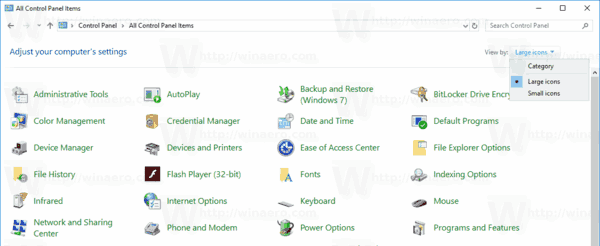
- Find the Sync Center icon.

- Open Sync Center and click on the link Manage offline files on the left.
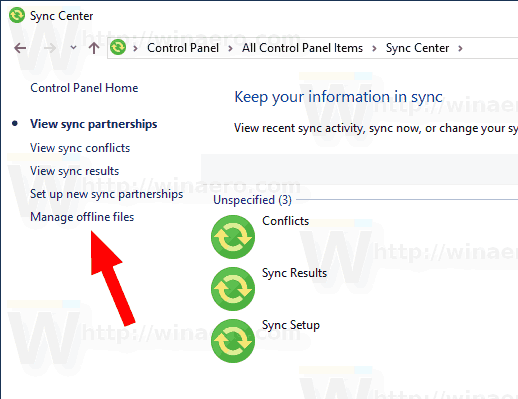
- Click on the Enable offline files button.
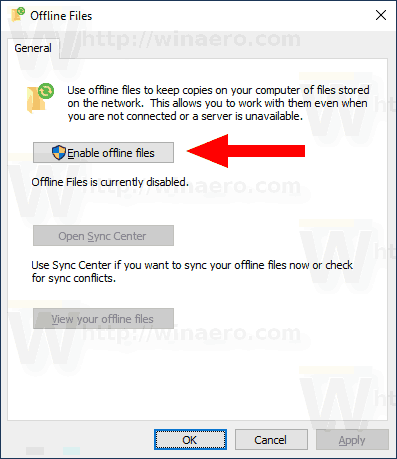
- Restart Windows 10 to apply the changes.
You are done.
Alternatively, you can enable the feature with a Registry tweak.
Enable Offline Files with a Registry tweak
- Open the Registry Editor app.
- Go to the following Registry key.
HKEY_LOCAL_MACHINE\SYSTEM\CurrentControlSet\Services\CSC
See how to go to a Registry key with one click.
- On the right, modify or create a new 32-Bit DWORD value Start.
Note: Even if you are running 64-bit Windows you must still create a 32-bit DWORD value.
Set its value to 1 in decimal to enable the Offline Files feature.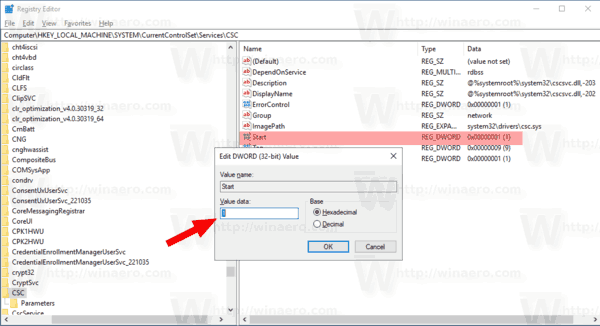
- Now, go to the key
HKEY_LOCAL_MACHINE\SYSTEM\CurrentControlSet\Services\CscService. - There, set the Start 32-bit DWORD value to 2.
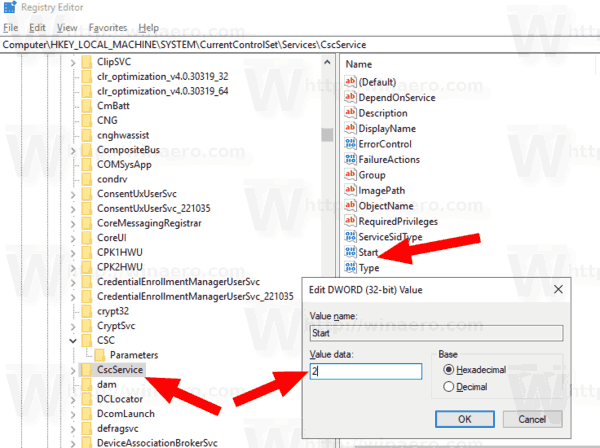
- Restart Windows 10.
You are done. To save your time, you can download the following ready-to-use Registry files:
The undo tweak is included.
If you need to disable Offline Files, use the same Control Panel applet. Navigate to Control Panel\All Control Panel Items\Sync Center, click on the link Manage offline files on the left. In the next dialog, click on the button Disable Offline Files.
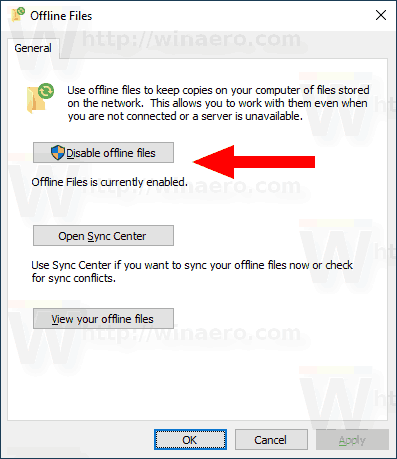
Alternatively, you can use the provided Registry tweak to disable it. Also, you can apply it manually by setting the Start 32-bit DWORD value to 4 under the keys HKEY_LOCAL_MACHINE\SYSTEM\CurrentControlSet\Services\CSC and HKEY_LOCAL_MACHINE\SYSTEM\CurrentControlSet\Services\CscService.
That's it.
Support us
Winaero greatly relies on your support. You can help the site keep bringing you interesting and useful content and software by using these options:

Question for you: if you enable offline files, will they be indexed and searched quickly with Windows Search, unlike when they are on a network folder?